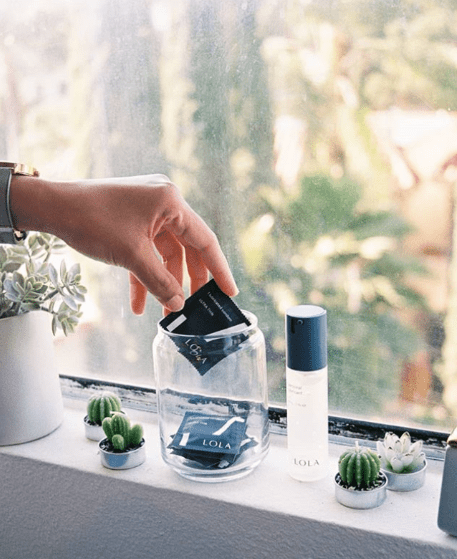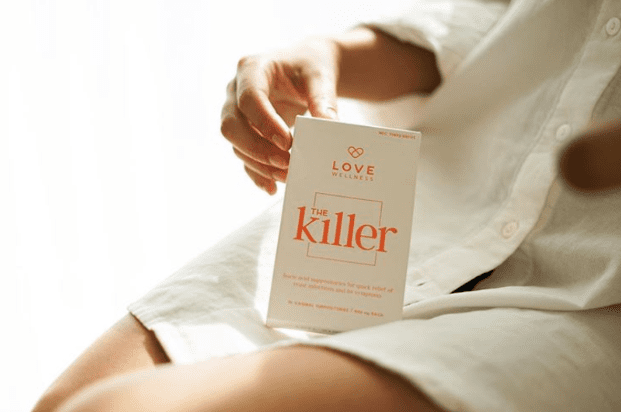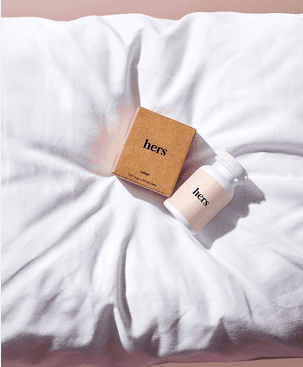Next-generation consumers expect their products to take a definitive stance on gender inclusivity and equality, challenging brands to be increasingly aware and responsive. While the gender spectrum has become progressively fluid, some categories are going against the grain by leaning into gender-specific empowerment through celebration, education and support. Health and wellness brands, specifically, are straddling a fine line between embracing gender distinctions and breaking down unwelcomed stereotypes.
Let’s talk about sex
Historically, sexual health has been portrayed as a taboo topic for women, building shame around purchasing sex-related products. The stigma is still evident, with 25% of US women preferring that someone else purchase their condoms, compared to 8% of men, according to Mintel research on contraceptives and sexual health. Dominated by condom sales, the industry has continued to primarily focus on male consumers as the key target. However, contraceptive use is far from a genderless narrative.

Following numerous female-centered, sex-focused headlines (#TimesUp, #MeToo, the choice debate, etc.), brands are acknowledging the need to educate, support and encourage women to feel connected to their sexual health. A recent surge of sexual wellness products focused on sexual health as opposed to physical experience have emerged. According to Mintel research on marketing health to millennials, nearly half of women seek health and wellness products that support their lifestyle and the same proportion want their health and wellness products to support their total wellbeing. This positioning has welcomed an emerging trend within the industry: purchasing sexual health products is ingrained in wellness and lifestyle.
Sexual wellness company Lola offers female-forward condoms and personal lubricant with a focus on ingredient transparency. Lola’s condoms promote use of natural rubber and 100% locally-sourced, medical-grade lubrication, in tandem with premium protection. Similarly, the personal lubricant claims to maintain natural pH balance, in addition to being gynecologist-approved. The brand’s product attributes have a unique focus on health and wellness, with pleasure as a secondary (but still important) benefit.

Women’s personal care brand Love Wellness offers an over-the-counter sexual health product for combating yeast infections. Shopping the drug store aisle for yeast infection treatment often brings out feelings of discomfort or embarrassment for women. Love Wellness’ yeast infection product, Killer, uses a boric acid suppository treatment made from a mineral found in seawater. In addition to naturally-derived ingredients, Killer offers discreet and stylish packaging, unlike many other brands within the space.

Direct-to-consumer company Hers recognized that treatment for sex drive needs to expand beyond Viagra. According to the website, “Millions of women struggle with changes in their sex drive…Women have been ignored when it comes to a solution to the very real, very common concern.” Hers offers prescription medication Addyi to treat hypoactive sexual desire disorder – the first FDA approved prescription treatment of its kind. Hers aims to level the “sex drive” playing field with the product while reminding women that low libido is a common condition. Also focused on wellness, the brand has positioned sex drive as less about optimal performance and more about feeling your best.
Real-talk about the female role in pregnancy and breastfeeding
Certain aspects of family planning and early parenthood have strong gender lines. Physical body functions, such as pregnancy and breastfeeding, necessitate a conversation with women directly. So, how do family planning and pregnancy brands speak to women without perpetuating traditional motherhood stereotypes?
According to Mintel research on pregnancy and health, 74% of women described themselves as tired during pregnancy, while half said uncomfortable and two in five said overwhelmed. Yet, brands tend to focus on only the happiness of growing a family. Maternal mental health disorders such as depression and anxiety are known to impact a fair number of women during pregnancy and the postpartum period. Many mothers may feel there is still a stigma associated with having unhappy feelings during this stereotypically blissful time or attribute mental health conditions with hormonal mood swings during pregnancy – a thought conditioned by societal standards.
It is common for moms to experience breastfeeding challenges. According to Mintel research on lifestyles of young families, nearly half of moms work full-time, necessitating engagement with mothers who are experiencing pressure and uncertainty around returning to work while breastfeeding. Companies such as Medela LLC are addressing the needs of new moms and the health of babies. Known for their breast pump and lactation pod, the company announced the launch of New Moms’ Healthy Returns (NMHR), a single-source solution for employers to support employees that breastfeed when they return to work after the birth of a baby, a time when breastfeeding rates often drop.
Blurring the lines of traditional mothers and fathers
Challenging set-in-stone gender roles, men are fighting for their rights in family planning and early parenthood. Society assumes women play the role of primary caregivers of their children, which have driven marketing strategies for key players within the category. Fathers – whether in a heterosexual or same-sex relationship – are an important demographic for brands to reach. Slow strides have been made in select areas of parenthood, such as men gaining equality through standardizing parental leave and demanding changing tables in public restrooms. With more progress needed, where can brands step up?
Nearly three-quarters of Millennial fathers turn to their spouse or partner for parental advice and are far less likely than Millennial moms to rely on formal resources, such as blogs, magazines or social media according to Mintel research on millennial dads. The difference between sources of guidance indicates the lack of parenting resources targeting the non-child bearing parent. Fathers, or any parent that does not experience traditional pregnancy, may feel an abrupt transition from the prenatal stage to childbirth. Addressing the mental health of non-child bearers during their partner or surrogate’s pregnancy postpartum, as well as providing more resources for non-traditional parents are key areas where brands can offer support.
What we think
Health brands today face a unique challenge: addressing gender roles during a time of gender neutrality. To resonate with emerging generations who are socially motivated, key players must be intentional and thoughtful when singularly targeting men or women. Many aspects of health are gender-relevant, but breaking down harmful gender stereotypes is more important than ever to today’s consumer. Health brands can maintain gender positioning as long as it is rooted in purpose.





































